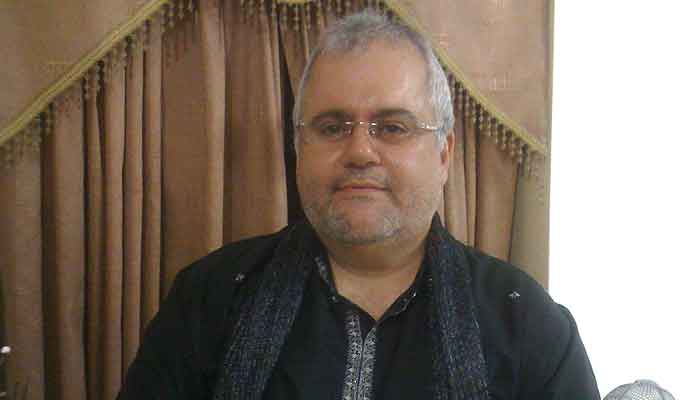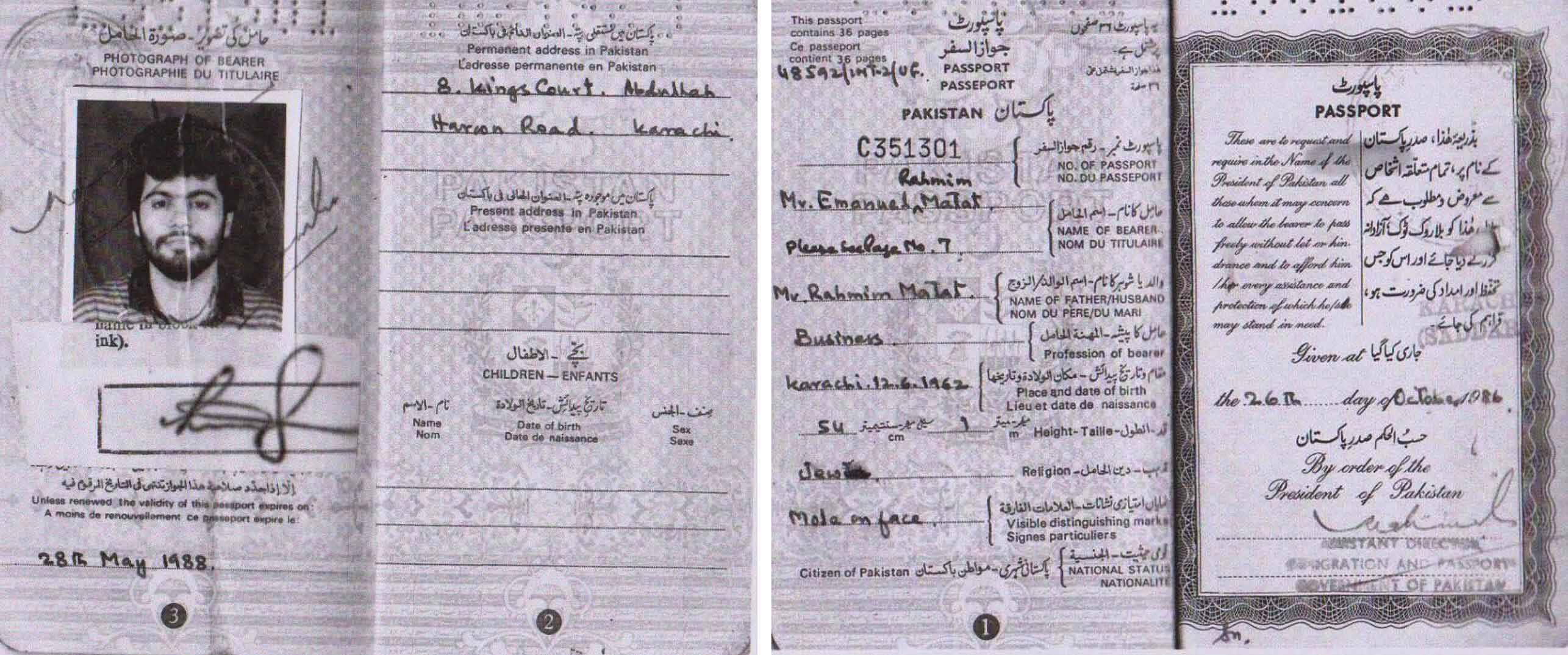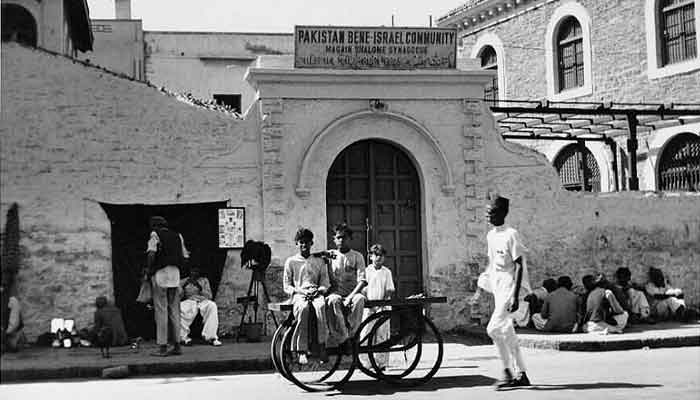Karachi-born Jews want to visit their birthplace
DUBAI: Many Karachi-born Jews, currently residing in Israel, have expressed their desire to visit their birthplace after the peace deal between the United Arab Emirates (UAE) and Israel.
Speaking with The News, Pakistani-origin Jews hoped that they would travel to their motherland after normalisation of ties as the peace deals are gaining momentum across the globe. At the time of creation of Pakistan, there were around 2,500 Jews living in Karachi only with one Synagogue named “Magen Shalom”. The synagogue was in Ranchore Lines, one of the oldest settlements in Karachi South district.
Many Karachi-born Jews speak Urdu language with clarity because they had received their education in Karachi during 50s and 60s, then moved to Israel and other parts of the world. A member of a Jewish family, Emanuel Matat told this correspondent from Israel, “Aray! Bhai Hum Ko Biryani Khilow” (Please! make Biryani for me... I would love to visit Pakistan).
The residents of the United Arab Emirates (UAE) can now directlymake a telephonic call in Israel after the UAE authorities lifted the calling restriction between two countries. Emanuel Matat also wishes to visit Karachi although it is still a dream but he has made a plan to visit Dubai soon.
59-year-old Matat migrated with a heavy heart three decades back from Pakistan. He and his 10 siblings are the only Jews he knows who were born in Pakistan. Matat’s family was the last Jewish family to leave Pakistan in the late 80s but the sweet memories of Karachi always take them to the city.
He said, “When my father got married in 1957 in Karachi, there were 600 Jewish families living in Karachi.” Matat got education from BVS School in Karachi and has wonderful memories of a peaceful multi-cultural mega city.
“My father, Rehamim, was a big businessman and he didn’t want to leave, he liked Pakistan a lot,” recalls Matat. The family was in the carpet industry and Jewish buyers from all over the world would order them.
“I would not have left Pakistan if there had been no family compulsion,” says Matat. According to Matat, there are no Jews left in Karachi and as far as Matat knows there are no Jewish communities elsewhere in Pakistan too.
Not even Karachi’s main synagogue, Magen Shalom, has survived. Built in 1893, it was destroyed in 1988 to make way for a shopping plaza. The Jewish cemetery is still there – but with no one to look after it.
Matat misses his country of birth and says if given the chance, he’d return to live in Pakistan. Matat proudly showed his old Pakistani passport where his religion “Jewish” is also written. He recalled that Jews used to gather at Karachi’s synagogue “Magen Shalom” especially on Saturdays, the Jewish holy day.
“Muslim carriage riders sometimes even didn’t take money from us,” he said about the peaceful and tolerant mega city of that time. Besides Matat, some other Jews also spoke but on condition of anonymity. They said that they spent their childhood in Karachi but now the situation had changed. They also dream of visiting Karachi some day. A few said that the graves of their ancestors and loved ones were in Karachi and they wanted to visit them. There are graves of the Jewish community in two cemeteries in Karachi.
-
 Hailey Bieber's Subtle Gesture For Eric Dane’s Family Revealed
Hailey Bieber's Subtle Gesture For Eric Dane’s Family Revealed -
 Moment Prince William 'broke Down' And 'apologised' To Kate Middleton
Moment Prince William 'broke Down' And 'apologised' To Kate Middleton -
 Paul Mescal And Gracie Abrams Stun Fans, Making Their Romance Public At 2026 BAFTA
Paul Mescal And Gracie Abrams Stun Fans, Making Their Romance Public At 2026 BAFTA -
 EU Rejects Any Rise In US Tariffs After Court Ruling, Says ‘a Deal Is A Deal’
EU Rejects Any Rise In US Tariffs After Court Ruling, Says ‘a Deal Is A Deal’ -
 King Charles Congratulates Team GB Over Winter Olympics Success
King Charles Congratulates Team GB Over Winter Olympics Success -
 Meryl Streep Comeback In 'Mamma Mia 3' On The Cards? Studio Head Shares Promising Update
Meryl Streep Comeback In 'Mamma Mia 3' On The Cards? Studio Head Shares Promising Update -
 Woman Allegedly Used ChatGPT To Plan Murders Of Two Men, Police Say
Woman Allegedly Used ChatGPT To Plan Murders Of Two Men, Police Say -
 UK Seeks ‘best Possible Deal’ With US As Tariff Threat Looms
UK Seeks ‘best Possible Deal’ With US As Tariff Threat Looms -
 Andrew Arrest Fallout: Princess Beatrice, Eugenie Face Demands Over Dropping Royal Titles
Andrew Arrest Fallout: Princess Beatrice, Eugenie Face Demands Over Dropping Royal Titles -
 Rebecca Gayheart Breaks Silence After Eric Dane's Death
Rebecca Gayheart Breaks Silence After Eric Dane's Death -
 Kate Middleton 2026 BAFTA Dress Honours Queen Elizabeth Priceless Diamonds
Kate Middleton 2026 BAFTA Dress Honours Queen Elizabeth Priceless Diamonds -
 Sterling K. Brown's Wife Ryan Michelle Bathe Reveals Initial Hesitation Before Taking On New Role
Sterling K. Brown's Wife Ryan Michelle Bathe Reveals Initial Hesitation Before Taking On New Role -
 BAFTA Film Awards Winners: Complete List Of Winners
BAFTA Film Awards Winners: Complete List Of Winners -
 Millie Bobby Brown On Her Desire To Have A Big Brood With Husband Jake Bongiovi
Millie Bobby Brown On Her Desire To Have A Big Brood With Husband Jake Bongiovi -
 Backstreet Boys Admit Aging Changed Everything Before Shows
Backstreet Boys Admit Aging Changed Everything Before Shows -
 Biographer Exposes Aftermath Of Meghan Markle’s Emotional Breakdown
Biographer Exposes Aftermath Of Meghan Markle’s Emotional Breakdown






